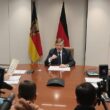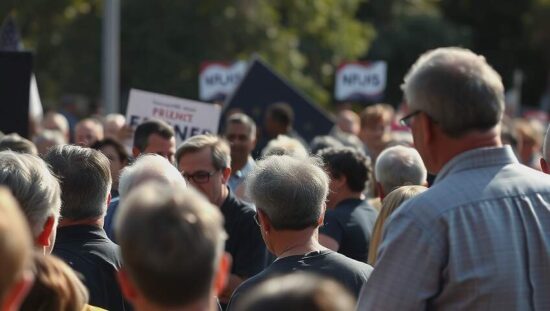The debate surrounding the Christian Democratic Union’s (CDU) strategy towards the right-wing Alternative for Germany (AfD) has intensified, with Thuringian Minister-President Mario Voigt publicly urging a shift away from what he perceives as a defensive and reactive approach. Voigt, also a member of the CDU leadership, delivered his remarks in an interview with Bild am Sonntag, signaling a divergence in opinion within the party’s upper echelons.
Voigt’s appeal comes amidst ongoing internal discussions following a recent leadership retreat focused on managing the AfD’s growing influence. This follows a stark warning from Chancellor and CDU Chairman Friedrich Merz, who previously cautioned that the AfD’s explicit goal is the dismantling of the CDU itself.
The core of Voigt’s argument revolves around the perceived paralyzing effect of constantly framing political discourse around the AfD. He insists that the CDU, a party wielding considerable power – leading the chancellery, holding the premierships of eight states and dominating local governance – must project confidence and assert its position as the guiding force in German politics. “Either Germany moves in the right direction under the leadership of the CDU, or the negativity of the AfD takes hold” Voigt stated, emphasizing the need for a more proactive stance.
Significantly, Voigt directly challenged the prevalent rhetoric within CDU circles advocating for a “firewall” against the AfD. He dismissed the term as “fear-driven” and “passive” arguing that such a strategy places the AfD at the center of the political discourse, inadvertently validating its agenda. He explicitly warned that continually referencing the AfD as a point of comparison and reaction is ultimately detrimental to the CDU’s ability to effectively govern and shape the national agenda.
The divergence in opinion highlights a fundamental questioning of the CDU’s current trajectory. While acknowledging the need to counter the AfD’s influence, Voigt’s call for a more assertive posture suggests a desire to move beyond a defensive posture and re-establish the CDU as the undisputed leader in defining Germany’s political direction. The challenge now lies in determining how the party can address the anxieties fueling support for the AfD while simultaneously projecting the strength and leadership Voigt advocates for.





